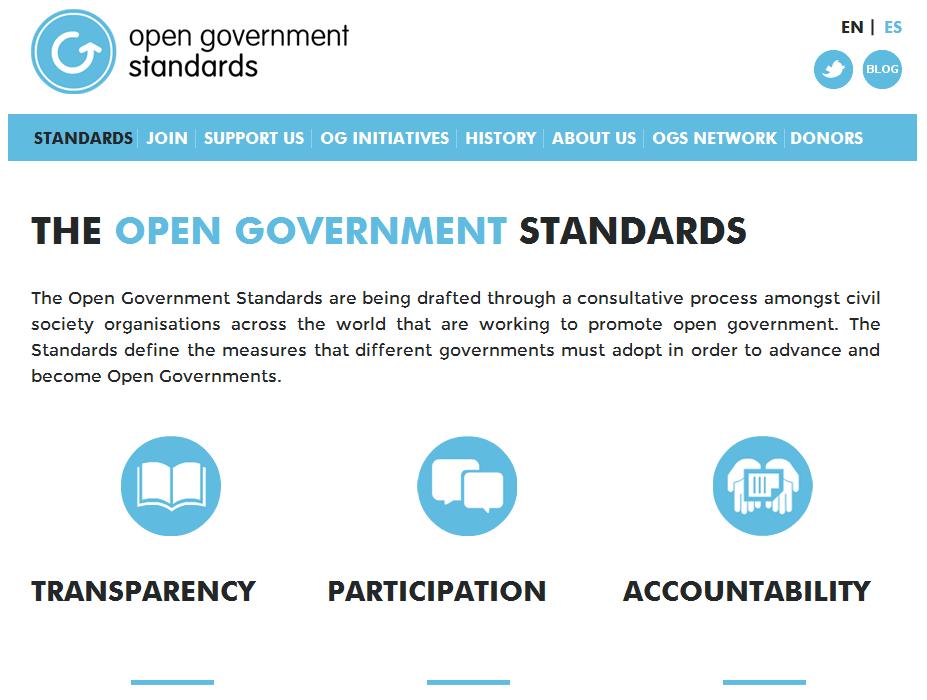1 February 2013 – The Open Government Standards are being drafted through a consultative process amongst civil society organisations across the world that are working to promote open government. The Standards define the measures that different governments must adopt in order to advance and become Open Governments.
Participation
It means that the public can engage directly in the consideration of policy options and decision making, and contribute ideas and evidence that lead to policies, laws, and decisions which best serve society and broad democratic interests. That governments actively seek to mobilize citizens to engage in public debate, and that mechanisms exist which permit the public to participate at their own initiative.
Governments need to proactively approach and engage citizens and support civil society in order to increase their capacity to participate.
– Through education and skills programs
– Through laws and policy such as access to information
– Through encouraging an environment to participate
– Through capacity-building measures targeted at those least able to participate.
Active collaboration between governments, civil society and key stakeholders helps balance the decision making process that means decisions are closer to the needs of citizens. Active collaboration of governments with citizens, civil society and other stakeholders is an effective way to establish open, varied and developed public debates, rather than closed and unbalanced influence upon decision-making.
As a result, active collaboration empowers all sides in the decision-making process, which means the decision is made in the spirit of common ownership. Governments will find active collaboration helps them make decisions that are more in-tune with public and civil society expectations, reducing controversial or questionable outcomes and challenges to those decisions.

